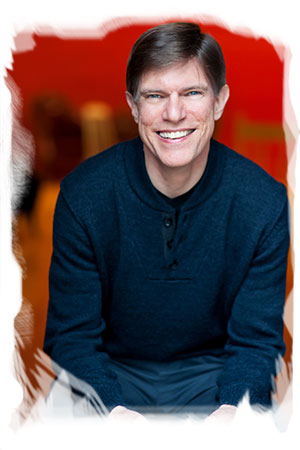An interview with Peter Gardiner-Harding, Executive Director at playsthatwork
 Many of you have asked about our Process of Coaching Course and what “experiential learning and simulations” as part of the second half of our day will be like. We explained it in a recent post this way: After lunch, we’ll bring an actor in to “play”. He will have a specific character, personality traits, and some previous past experiences built into his character. And in this segment you get to do the hardest part of applying coaching tools – PRACTICE. One-on-one you’ll get to work with the actor to go through the “Process of Coaching”. Every once in a while we’ll “FREEZE” we’ll have the room give you some tips and suggestions, get feedback from the actor on how he’s feeling, and get feedback from Ruth and me.
Many of you have asked about our Process of Coaching Course and what “experiential learning and simulations” as part of the second half of our day will be like. We explained it in a recent post this way: After lunch, we’ll bring an actor in to “play”. He will have a specific character, personality traits, and some previous past experiences built into his character. And in this segment you get to do the hardest part of applying coaching tools – PRACTICE. One-on-one you’ll get to work with the actor to go through the “Process of Coaching”. Every once in a while we’ll “FREEZE” we’ll have the room give you some tips and suggestions, get feedback from the actor on how he’s feeling, and get feedback from Ruth and me.
I thought more about how best to explain it, and who better than the expert and experiential leaning guru himself? Our fantastic colleague at playsthatwork, Peter Gardiner-Harding (say that three times fast!), can share his thoughts on the subject?” So earlier this week I had the pleasure of speaking with Peter (furthermore known as PGH) to gain his insights.
ND: So Peter, what IS experiential learning? How is it different than role-playing or simulation?
PGH: To me, role-playing is like a “let’s pretend”, and simulation is a subset of experiential learning itself, which is a way to experience learning with the mind and heart. (Click to Tweet) Participants are fully engaged – not playing a role with someone else. They are doing the work in their own skin, with their own point of view, learning to integrate the new coaching skills into the way they coach. It’s here we use a professional actor who does the role-playing. The actor has the skills to portray a character and to deliver feedback so that learners have instant integration of their performance with their learning.
ND: How did you get into this field?
PGH: Although I started in business and became a CA, I was meant to be an actor. The combination of business and theatre is dramatic and meaningful, and I wanted to tell stories using my theatre and business backround together.
ND: Who gets the most out of these simulations?
PGH: The people who really thrive in this learning environment are those that are exceptionally emotionally intelligent, and self-reflective; people who are good at receiving feedback and seeking it. They levitate in these situations! (Click to Tweet) Everyone can benefit, but these people are the ones who who discover the most about themselves. And I believe that anyone who deals with other people in their jobs can glean a lot from learning to coach – IT software developer, for example, can learn to empathize with their users.
ND: Why do people find it hard to coach?
PGH: I would say the biggest barrier to effective coaching is when the coach has their own set of outcomes that drive the agenda for the coaching conversation. Keeping the coach’s outcomes out of the conservation is the key, so that the employee can self discover. It’s very difficult to straddle that line. You can have outcomes and coach; you just have to be transparent about them.
ND: What’s your favorite part of your job?
I love seeing people come away from a simulation having experienced a transformative “a-ha” moment, when they actually see themselves and the results they get differently, something about themselves that they never noticed before. Some people have come away from simulations having changed their lives both professionally and personally.
***
We absolutely love working with playsthatwork. And we also love seeing the “a-ha” moments when people really “get” the process of coaching and how impactful it can be on their teams. We know our attendees will love the experiential portion of our Process of Coaching course and are really looking forward to delivering it. Click here to register today! (Early bird savings end April 30th.)
Want to learn more about the process of coaching and how we use experiential learning? Give us a shout at info@whiteboardconsulting.ca/staging, or Tweet us at @whiteboardcons using the hashtag #processofcoaching.
We’re so excited to see you all there!
Until next week,
Nicole
